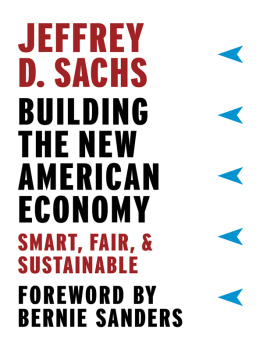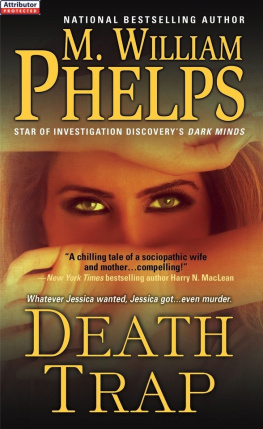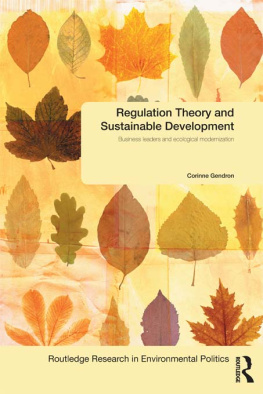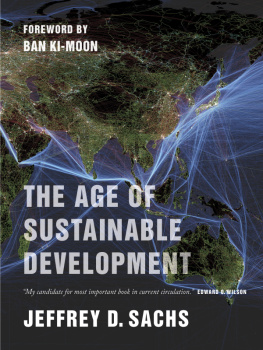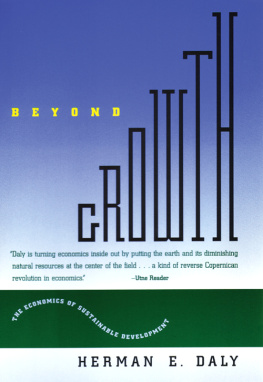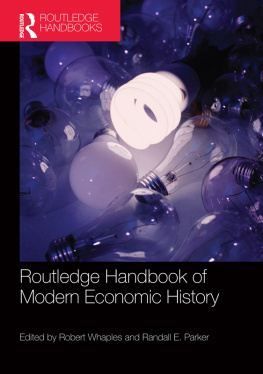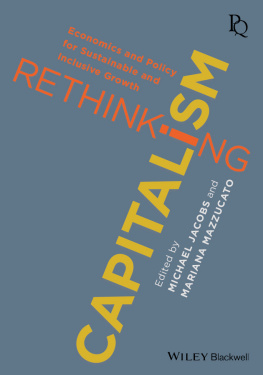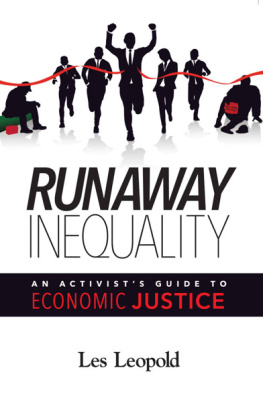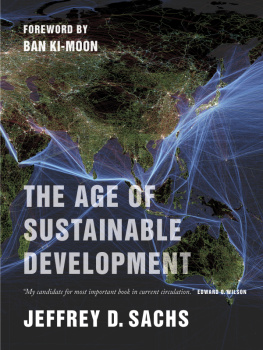Table of Contents
BUILDING THE NEW AMERICAN ECONOMY
JEFFREY D. SACHS
Foreword by
BERNIE SANDERS
BUILDING THE NEW AMERICAN ECONOMY
SMART, FAIR, AND SUSTAINABLE
Columbia University Press
New York
Columbia University Press
Publishers Since 1893
New York Chichester, West Sussex
cup.columbia.edu
Copyright 2017 Jeffrey D. Sachs
All rights reserved
E-ISBN 978-0-231-54528-0
Cataloging-in-Publication Data available from the Library of Congress
ISBN 978-0-231-18404-5 (cloth)
ISBN 978-0-231-54528-0 (electronic)
A Columbia University Press E-book.
CUP would be pleased to hear about your reading experience with this e-book at .
Cover design: Lisa Hamm
For Sienna, Willa, and Olive and their generation
CONTENTS
United States Senator from Vermont
M y campaign for President of the United States was never just about electing a president. It was about transforming America. As I traveled all across this great country of ours, I had the honor of meeting countless Americans who desperately want an economy that works for the middle class and working families, not just the billionaire class. They are sick and tired of working longer hours for lower wages, while multinational corporations ship millions of jobs overseas. They are fed up with an economy in which CEOs make 300 times more than they do, while 52 percent of all new income goes to the top one percent. They are tired of not being able to afford decent, quality childcare or a college education for their kids. They want policies that create jobs, raise wages, and protect the most vulnerable people in this country. And they want us to aggressively combat climate change to make our planet healthy and habitable for future generations.
What I heard and what I continue to hear is that Americans have had enough of establishment politicians and establishment economists who have claimed for far too long that we must choose between economic growth, economic fairness, and environmental sustainability. They have sold us a bill of goods that says we cant have all three. Well, they are wrong. To my mind, widely shared prosperity, economic fairness, and environmental sustainability must go hand in hand. An economy in which almost all of the wealth and income flows to the very top is simply not sustainable. Likewise, an economy based on destructive environmental policies will inevitably lead to catastrophe for rich and poor alike.
In this book, Columbia University Professor Jeffrey Sachs presents a clear explanation of how America can achieve all three critically important goals and create an economy that works for all of us. Jeffrey Sachs is one of the worlds leaders in the field of sustainable development, which takes a serious look at the economic, social, and environmental impacts of development policies. I am proud to say that he was also a strong supporter and close advisor to me during the presidential campaign and a key ally of our progressive revolution to transform America.
This book is particularly timely given the election of Donald Trump. The president-elect tapped into the anger of the declining middle class, but he left unchallenged much of the economic orthodoxy that led to the hemorrhaging of middle-class jobs in the first place. He promised economic prosperity, in large part, by providing trillions of dollars in tax breaks to the wealthy and large corporations, and by turning back efforts to curb the carbon emissions from fossil fuel that contribute to climate change. And instead of offering a plan to insure the 28 million Americans who still dont have healthcare coverage, he pledged to repeal President Obamas Affordable Care Act. That would throw 20 million Americans off of health insurance.
Professor Sachs offers a very different vision for America on a wide range of issues, including the federal budget, infrastructure, jobs, health care, climate change, and foreign policy. He explains where America can and should be by 2030, in terms of reducing poverty, addressing the scourge of suffocating student debt, expanding health care and lowering costs, protecting the environment, and many other issues. Now, more than ever, this is a message that needs to be heard.
D onald Trump becomes president of a nation that is deeply divided by class, race, health, and opportunity. In his acceptance speech, he pledged to be the president for all Americans. He also gave a very promising hint of how to pursue that objective in practice.
Trump is a real-estate developer, so its not surprising that his brief acceptance speech was dominated by the idea of rebuilding, a word he mentioned four times:
Working together, we will begin the urgent task of rebuilding our nation and renewing the American dream. We are going to fix our inner cities and rebuild our highways, bridges, tunnels, airports, schools, hospitals. Were going to rebuild our infrastructure, which will become, by the way, second to none. And we will put millions of our people to work as we rebuild it.
This is a valid, indeed uplifting perspective. America desperately needs rebuilding. Its infrastructure is decrepit; its energy system is out of date for a climate-threatened economy; its coastal areas are already showing grave vulnerability to rising sea levels and extreme storms; its Rust Belt cities like Grand Rapids, Michigan, are boarded up; its inner cities across the country are unhealthy for the children being raised in them. Rebuilding Americas inner cities and creating a twenty-first-century infrastructure could be Trumps greatest legacy.
Trumps pledge to make Americas infrastructure second to none is a correct and bold goal, for Americas competitiveness, future job creation, public health, and wellbeing. Yet as I will explain in this book, America today is certainly no longer second to none. On a recent Sustainable Development Goals Index, the United States ranked twenty-second out of thirty-four high-income countries. For Americans returning from foreign travel, the well-known sign that theyve touched down at home is that the elevators, escalators, and moving walkways of our once-proud airports are out of order.
A builder-president could indeed help to restore vitality to the U.S. economy and put millions to work in the process. All of the major candidates in the 2016 campaign pledged a major effort to build Americas infrastructure. Indeed, Trump suggested a hefty price tag of $1 trillion, which is a realistic sum and target for the coming five years (roughly 1 percent of national income per year).
The keys to success in building the new America economy can be summarized in three words: smart, fair, and sustainable.
A smart economy means deploying the best of cutting-edge technology. Our energy grids should be smart in economizing on energy use and in incorporating distributed energy sources (such as wind and solar power) into the grid. Our transport system should be smart in enabling self-driving electric vehicles within our cities and twenty-first-century high-speed rail between them.
A fair economy would start with Trumps pledge to rebuild the inner cities. Such a pledge should include affordable housing; decent urban public schools and public health facilities; efficient transport services for low-income communities; parks and green spaces in places now burdened by urban blight; the cleanup of urban toxic dumps; comprehensive recycling rather than landfills; and safe water for all Americans, so that the drinking-water disaster that afflicts Flint, Michigan, and similar crises elsewhere are brought to a rapid end and never recur.

